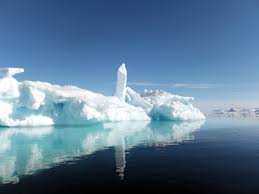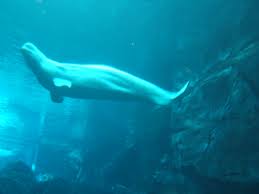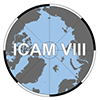|
|
|
|
|
|
|
|
The Arctic of the Future: Strategic Pursuit or Great Power Miscalculation? May 8, 2018 (Washington, DC USA). The Center for Strategic & International Studies will host this half-day discussion on the geostrategic and geo-economic future of the Arctic. In a moderated "exit interview," the Commandant of the U.S. Coast Guard, Admiral Paul F. Zukunft, will discuss his active public advocacy for and interagency pursuit of securing greater U.S. capabilities and readiness for a rapidly changing Arctic, as well as offer some thoughts on the overall trajectory of the Coast Guard's future mission in the polar regions. Subsequent panels will closely examine Russia's future economic and security ambitions in the Arctic as well as address the key drivers of future economic growth and the forces that are shaping these new economic dynamics.
|
Media
Q&A: Gaining a Bird's Eye View of the Greening of the Arctic. University of Virginia terrestrial ecologist Howie Epstein has won a $607,000 NASA grant to use Earth-observing satellite data to assess how vegetation diversity is changing in the Arctic tundra. Epstein, a professor of environmental sciences, has for much of his career conducted research, both on the ground and via satellite, on tundra regions - cold, extreme northern latitude areas where windswept plains are treeless, but a variety of low-lying, clustering plants have adapted to the environment. UVA Today
 Arctic Sea Ice Hits Record Low in April, Ice Tracking Center Says. Arctic Sea Ice Hits Record Low in April, Ice Tracking Center Says. Sea ice extent retreated across most of the Arctic last month, except in Hudson Bay and in the Davis Strait. That decrease means 2018 is roughly tied with 2016 for the lowest April sea ice extent on record, the National Snow and Ice Data Center said on Thursday, May 3. The Colorado-based data center, which has tracked sea ice with satellites since 1979, said that last month's Arctic sea ice extent averaged 13.71 million square kilometers. Nunatsiaq Online
Canadian Arctic Air Causes Trouble in Iceland. Icelanders have been unpleasantly surprised by the weather in recent days. People have awoken to their cars covered in snow and bouts of snowfall are accompanied by strong wind and cold temperatures. Snow at this time of year is not usual in Iceland. It is caused by currents of Arctic air flowing from the western parts of the Canadian Arctic. Iceland Monitor  BC Researcher Urges Shipping Industry to Slow Down in Arctic to Protect Belugas and Bowhead Whales. BC Researcher Urges Shipping Industry to Slow Down in Arctic to Protect Belugas and Bowhead Whales. A B.C. researcher is urging the shipping industry to adopt a voluntary measures meant to protect whales from vessel collisions and ship noise along Arctic routes. Those routes are ice-free for longer periods of time every year due to climate change, opening up the possibility of increased ship traffic. The western Arctic region is home to a healthy population of belugas and bowhead whales in the summer months, but they face a bleak future if more ships start using those waters without taking measures to protect marine wildlife, said Lauren McWhinnie, a University of Victoria researcher. The Star Why Atlantic Fish are Invading the Arctic. Scientists are witnessing the upending of large parts of the Arctic ocean. As the sea ice recedes and temperatures rise, the warmer waters of the Atlantic are moving north and bringing with them new competitors that vie for the same rich resources. Journalist Eli Kintisch explores an ecosystem undergoing profound change. This is the final part of a three video series on the changing Arctic. Thanks to the Pulitzer Center for Crisis Reporting for supporting Thaw. Vox
|
|
Future Events
The Face of Climate Change in the Arctic: The National Media's Role in Public Disengagement. May 11, 2018 (Washington, DC USA). Elizabeth Arnold of the Harvard Kennedy School will present this event hosted by the Arctic Research Consortium of the US (ARCUS). More than a decade of national media attention to the human impacts of climate change in the Arctic has largely framed communities as victims to sell the urgency of mitigation to the public. The talk will focus on Arnold's own experience and current research of media coverage to discuss the need for journalism and science communication that includes both threat and efficacy.
Council on Earth Cryology, May 15-16, 2018 (Moscow, Russian Federation). Scientific council on Earth cryology of Russian Academy of Sciences together with Department of Geocryology of Faculty of Geology of Lomonosov Moscow State University, Institute of the Earth Cryosphere, the Tyumen Scientific Senter, Melnikov Permafrost Institute (Yakutsk) of the Siberian Branch of the Russian Academy of Science holds on May 15 - 16, 2018 an enlarged meeting with participation of the Russian and foreign scientists, engineers and experts: "Current problems of geocryology." The meeting of Scientific council on Earth Cryology of RAS has the status of the International meeting. The publication of materials in the collection of reports is planned. Submissions (Submission Form), offers on cooperation, support of a conference and papers (Sample of Paper) to e-mail: cryoconf18@gmail.com
- Addressing the energy field of the future;
- Defense energy systems in the North;
- Natural hazards and aerospace/defense;
- Empowering Alaska's entrepreneurs;
- Navigating the changing Arctic; and,
- Developing local and global energy solutions.
The Effects of Climate Change on the World's Oceans, June 4-8, 2018 (Washington, DC USA). The 4th International Symposium will bring together experts from around the world to better understand climate impacts on ocean ecosystems - and how to respond. The event is hosted by a variety of groups including International Council for the Exploration of the Sea (ICES), N. Pacific Marine Science Organization (PICES), Intergovernmental Oceanographic Commission of UNESCO (IOC), and Food and Agriculture Organization of the United Nations (FAO).
Vision on Marine Infrastructure, June 11, 2018, 1:00-3:00 pm (Washington, DC)
.
The U.S. Committee on the Marine Transportation System and its Marine Transportation System Federal partners will share their visions and priorities on maritime infrastructure, which refers to physical infrastructure, informational infrastructure (such as aids to navigation, nautical charts, and real-time meteorological and oceanographic services), and mariner needs. Open to the public, but RSVP is required to access the location. Please contact Jaya.Ghosh@cmts.gov by June 6, 2018 to RSVP. See here for additional details.
 POLAR 2018, June 15-27, 2018 (Davos, Switzerland). POLAR2018 is a joint event from the Scientific Committee on Antarctic Research (SCAR) and the International Arctic Science Committee (IASC). The SCAR meetings, the ASSW and the Open Science Conference will be hosted by the Swiss Federal Institute for Forest, Snow and Landscape Research WSL under the patronage of the Swiss Committee on Polar and High Altitude Research. The WSL Institute for Snow and Avalanche Research SLF is organizing POLAR2018. POLAR 2018, June 15-27, 2018 (Davos, Switzerland). POLAR2018 is a joint event from the Scientific Committee on Antarctic Research (SCAR) and the International Arctic Science Committee (IASC). The SCAR meetings, the ASSW and the Open Science Conference will be hosted by the Swiss Federal Institute for Forest, Snow and Landscape Research WSL under the patronage of the Swiss Committee on Polar and High Altitude Research. The WSL Institute for Snow and Avalanche Research SLF is organizing POLAR2018.
5th European Conference on Permafrost, June 23-July 1, 2018 (Chamonix-Mont Blanc, France). In the continuation of the International and Regional conferences convened by the International Permafrost Association, the 5th European Conference on Permafrost (EUCOP 2018) will be held in Chamonix-Mont Blanc, France, 23rd June - 1st July 2018. The conference aims at covering all relevant aspects of permafrost research, engineering and outreach on a global and regional level. Conference website: here.
Arctic Observing Summit 2018, June 24-26, 2018 (Davos, Switzerland). The Arctic Observing Summit (AOS) is a high-level biennial summit that provides a platform to address urgent and broadly recognized needs of Arctic observing across all components of the Arctic system. AOS 2018 will be held in Davos, Switzerland ( June 24-26) and will focus on pressing issues in the implementation and support of sustained observations that can be addressed through a business-case lens. To that end, short submissions are requested that address any and all aspects of the overarching theme and sub-themes. Additional information can be found here.
17th International Congress of Circumpolar Health (ICCH17), August 12-15, 2018 (Copenhagen, Denmark). The ICCH congresses are held every third year in different locations in the circumpolar area and represent the largest scientific meetings worldwide on circumpolar health. The ICCH congresses serve as the primary source of information exchange and scholarly communication in issues relating to circumpolar health. More than 750 participants generally register and participate in each Congress, and more than 400 scientific papers or posters are usually presented.
UArctic Congress 2018, September 3-7, 2018 (Oulu and Helsinki, Finland).
The UArctic Congress 2018 will bring together key UArctic meetings and a science conference into one single gathering, including business meetings of the Council of UArctic, Rectors' Forum, Student Forum, and Thematic Networks & UArctic Institutes Leadership Team. The Congress is an integral part of the Finland's Arctic Council chairmanship program, and open to the public. The event will highlight the themes and priorities of the Finnish chairmanship, including the goals of the United Nations' 2030 Agenda for Sustainable Development, and the Paris Agreement under the UN Framework Convention on Climate Change.
Scientific Exploration of the Arctic and North Pacific (SEA-NorP), September 25-27, 2018 (Mt. Hood, Oregon USA). This workshop will include discussion of hypotheses that can be tested by scientific drilling in the region, the technology necessary to achieve those goals, ideal sites for drilling based on existing data, and where additional site survey data is needed. The goal of the workshop organizers is that multiple proposals will be initiated at the workshop, both for full cruise legs and for shorter, targeted expeditions around the following themes: ocean gateways, geohazards, volatile cycling, ice histories at transition zones, biosphere and climate.
The second Arctic Biodiversity Congress is hosted by the Conservation of Arctic Flora and Fauna (CAFF), the biodiversity working group of the Arctic Council, and the Ministry of the Environment, Finland. The second Arctic Biodiversity Congress will build on the success of the first Congress, held in 2014 in Trondheim, Norway, and will bring together scientists, policymakers government officials, Indigenous representatives, Traditional Knowledge holders, industry, non-governmental organizations, and others to promote the conservation and sustainable use of Arctic biodiversity.
|
|

  
4350 N. Fairfax Drive, Suite 510
Arlington, VA 22203, USA
External links in this publication, and on the USARC's World Wide Web site ( www.arctic.gov) do not constitute endorsement by the US Arctic Research Commission of external Web sites or the information, products or services contained therein. For other than authorized activities, the USARC does not exercise any editorial control over the information you may find at these locations. These links are provided consistent with the stated purpose of this newsletter and the USARC Web site.
|
|
|
|
|
|
|
|
|
 Arctic Sea Ice Hits Record Low in April, Ice Tracking Center Says. Sea ice extent retreated across most of the Arctic last month, except in Hudson Bay and in the Davis Strait. That decrease means 2018 is roughly tied with 2016 for the lowest April sea ice extent on record, the National Snow and Ice Data Center said on Thursday, May 3. The Colorado-based data center, which has tracked sea ice with satellites since 1979, said that last month's Arctic sea ice extent averaged 13.71 million square kilometers. Nunatsiaq Online
Arctic Sea Ice Hits Record Low in April, Ice Tracking Center Says. Sea ice extent retreated across most of the Arctic last month, except in Hudson Bay and in the Davis Strait. That decrease means 2018 is roughly tied with 2016 for the lowest April sea ice extent on record, the National Snow and Ice Data Center said on Thursday, May 3. The Colorado-based data center, which has tracked sea ice with satellites since 1979, said that last month's Arctic sea ice extent averaged 13.71 million square kilometers. Nunatsiaq Online BC Researcher Urges Shipping Industry to Slow Down in Arctic to Protect Belugas and Bowhead Whales. A B.C. researcher is urging the shipping industry to adopt a voluntary measures meant to protect whales from vessel collisions and ship noise along Arctic routes. Those routes are ice-free for longer periods of time every year due to climate change, opening up the possibility of increased ship traffic. The western Arctic region is home to a healthy population of belugas and bowhead whales in the summer months, but they face a bleak future if more ships start using those waters without taking measures to protect marine wildlife, said Lauren McWhinnie, a University of Victoria researcher. The Star
BC Researcher Urges Shipping Industry to Slow Down in Arctic to Protect Belugas and Bowhead Whales. A B.C. researcher is urging the shipping industry to adopt a voluntary measures meant to protect whales from vessel collisions and ship noise along Arctic routes. Those routes are ice-free for longer periods of time every year due to climate change, opening up the possibility of increased ship traffic. The western Arctic region is home to a healthy population of belugas and bowhead whales in the summer months, but they face a bleak future if more ships start using those waters without taking measures to protect marine wildlife, said Lauren McWhinnie, a University of Victoria researcher. The Star


